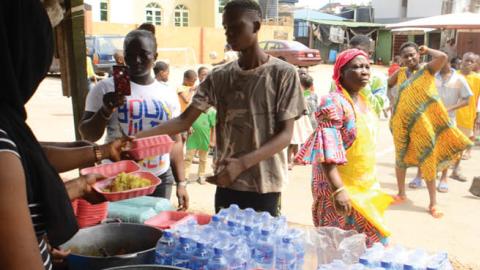The pandemic may have peaked in many countries, but for much of the world the worst is yet to come. Despite hopes that warmer temperatures would slow Covid-19’s spread in the Global South, the disease is spreading with relentless speed in countries like Kenya and Brazil. The strategies that have limited and slowed the virus in the Global North won’t work for the most part in the South. Without a vaccine or treatments, the people living there will be almost as powerless before the disease as humanity once was against smallpox.
Take the “lockdown” strategy. The purpose of this extremely costly policy is to “flatten the curve,” by shutting down much of the economy to ensure that health systems aren’t overwhelmed by waves of desperately ill patients.
In much of the world, this strategy is impossible. Only rich countries and rich peoples can afford lockdowns. In much of the Global South a substantial percentage of the population lives from hand to mouth. Many people make money selling things on the street or in crowded informal markets. They draw their water from communal taps; they use community latrines, if they have sanitation at all. Hundreds of millions do not have reliable access to clean water, much less to soap or hand sanitizer. After a few days without work, hunger will drive people back out onto the streets.
Read the full article in The Wall Street Journal


















